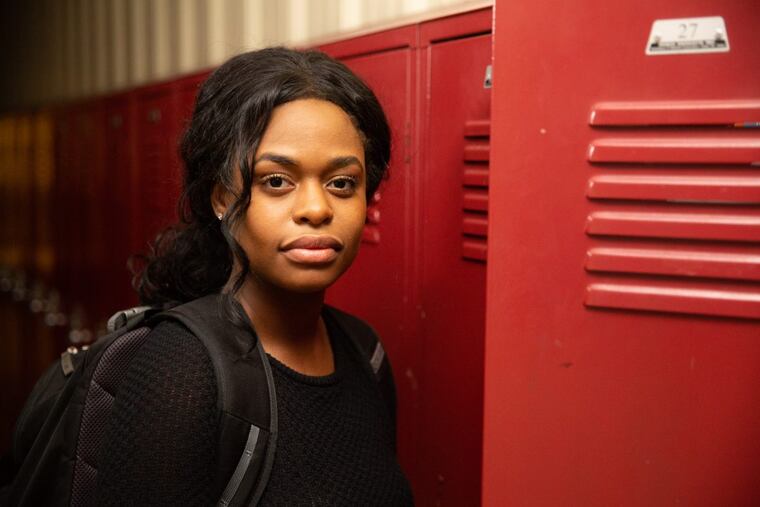Girls and boys shouldn't do everything together | Opinion
I have trouble with a policy that says anyone who's in an opposite-sex mood today can stroll in and observe me in my intimate moments.

It's amazing to think that one quick trip to the bathroom can change your life.
I was a junior in high school when I ducked into the girls' room at school one day to find … a boy. I froze. Three years at this particular school, and that had never happened to me before. The girls' bathroom had always been the girls' getaway place — a place for privacy, mostly, but also a little refuge — a place to get away from boys, maybe talk about boys, but not meet boys.
My first thought was to get out. My second was to find my teacher and let her know what had happened. The teacher told me to tell the principal, so I did. And the principal did nothing.
I soon found out I wasn't the only one caught off guard by this new, "open door" policy. A boy at our school was in the middle of changing clothes in the boys' locker room when he looked up to see a girl changing her clothes nearby. Movies and TV try to make that sound funny or sexy, but that's not how it feels when it happens to you. It's just embarrassing, awkward, and uncomfortable.
>> READ MORE: Federal court OKs Boyertown schools' policy letting transgender students use bathrooms of their choice
The boy in the locker room did what I did — got out and found an adult to tell what happened. He soon learned what I had: that administrators at our school really didn't care about our concerns. The administrator he talked to just told him to "tolerate it" — to "make it as natural as possible." How do you make something as unnatural as that "natural?" How natural would you feel, having someone of the opposite sex standing next to you — or your child — while you change clothes or go to the bathroom?
If our administrators didn't have much to say after we told them, they had even less to say before. No one notified the students at our school — or our parents — of this sudden change of policy. No one prepared us, warned us, counseled us. Did they really think everyone would enjoy the surprise and just embrace this idea, right away?
Well, if that's what they were thinking, I guess they were surprised, too. The family of the boy who met the girl in the locker room decided to file a lawsuit for violation of his right to bodily privacy. When I learned about the lawsuit, I signed on as a co-plaintiff.
On Thursday, a federal appeals court refused to stop the school district from violating our privacy rights, so we're considering our next steps. As one of my attorneys said after that decision, "The Supreme Court has already spoken: The real differences between men and women mean that privacy must be protected where it really counts, and that certainly includes high school locker rooms and restrooms."
The pushback in the media has been what you might expect, if you've been following these kinds of cases around the country the last few years.
According to the people on the blogs and at the microphones, those of us who object to finding ourselves in private spaces with people of the opposite sex must be bigots, or religious extremists, to deny our peers who identify with the opposite sex their choice of restroom. I guess it's always easier to label people than to think about where they're coming from.
I come from a broken home. As a child, I struggled for a long time through a broken foster care system. Eventually, a good, loving family adopted me, but all those previous experiences made me a shy and quiet little girl who didn't have a voice of my own.
>> READ MORE: Boyertown case proves the lives of transgender people can't be erased by extremists | Opinion
My adoptive parents worked hard to help me find that voice. They taught me to think for myself, and speak for myself, and that what I thought mattered. That came in handy when we moved to Boyertown, where black children like me were pretty few and far between, but racial slurs were not.
So, it's not like I don't know what it's like to be different, or can't understand someone who has a hard time speaking up for their rights. But that doesn't make me any more comfortable having my privacy invaded or knowing the bathroom door is open to anyone who wants to come in.
I don't have a problem sharing a bathroom with someone who identifies as transgender — provided they are the same sex I am. I do have trouble with a policy that says anyone who's in an opposite-sex mood today can stroll in and observe me in my intimate moments — and with school officials who value the feelings of a few students more than the dignity and privacy of all those in their care.
It's my hope that the judges who may hear our case going forward will understand that better than our school administrators have — and take more seriously their responsibility to protect girls'privacy where it should be most protected: in the girls' room.
Alexis Lightcap is a student at Boyertown Area Senior High School and a plaintiff in the lawsuit Doe v. Boyertown Area School District.